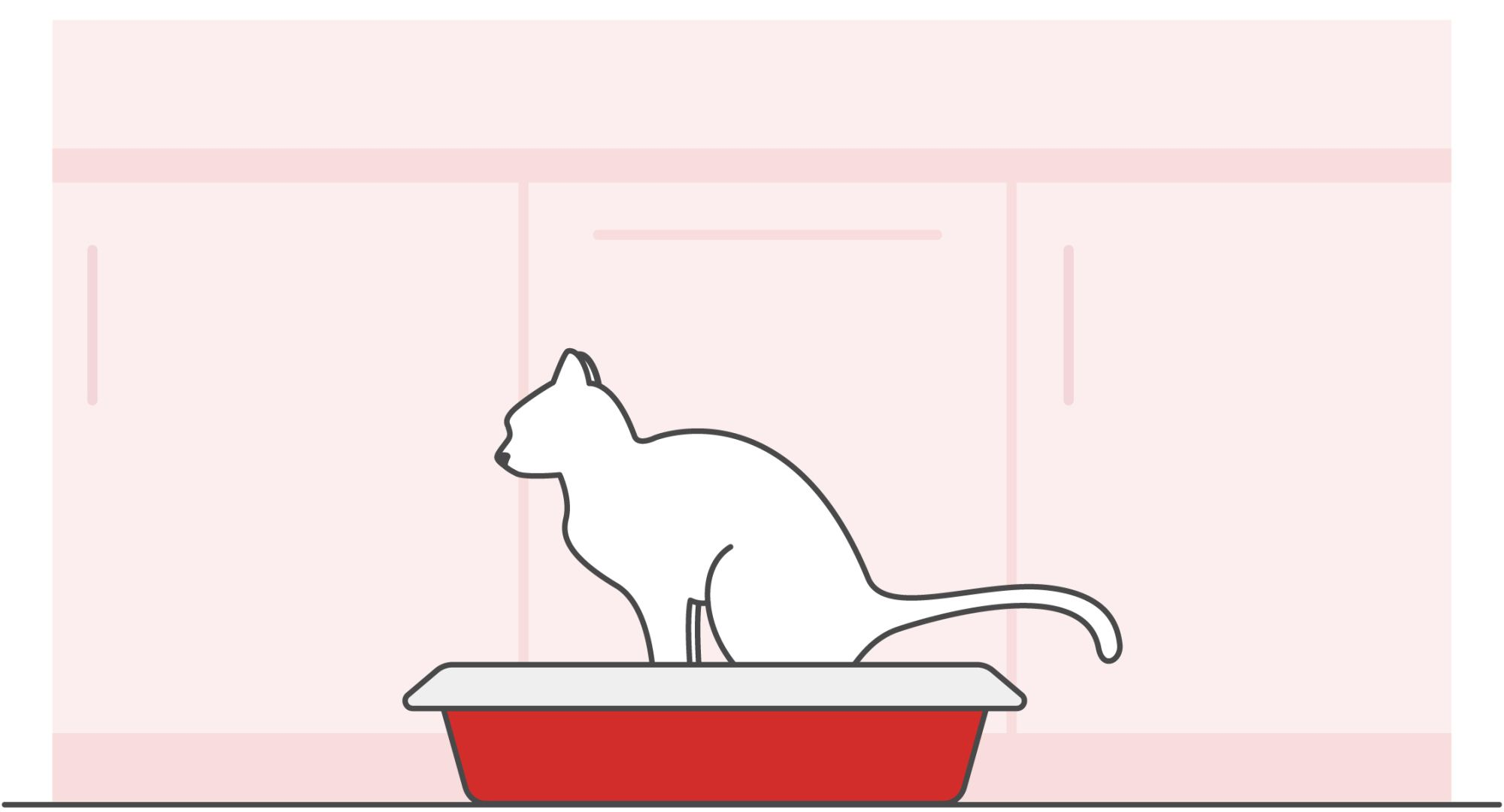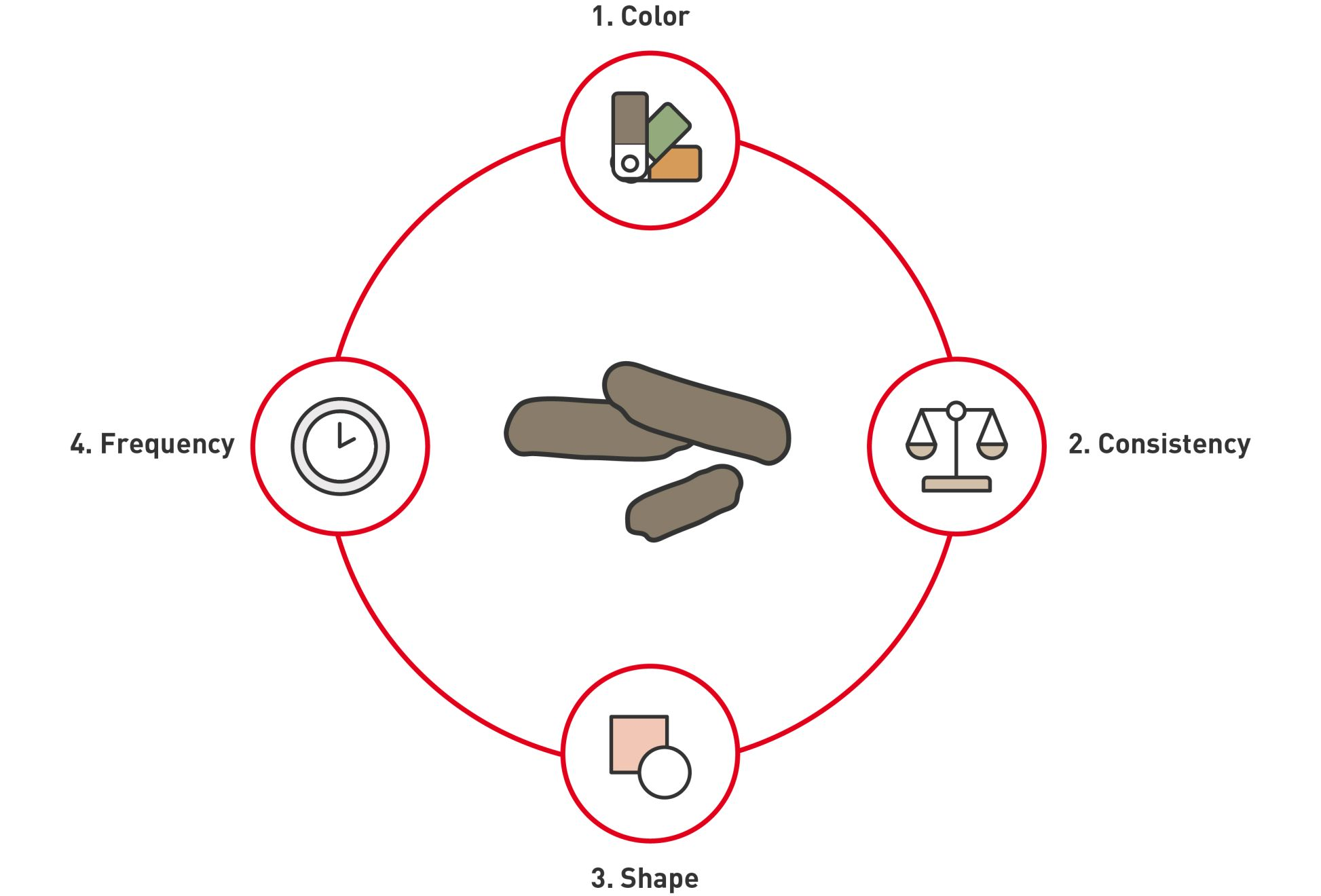What is your cat's poop telling you?
Article

However, when you do see your cat's poop, keep an eye on the consistency, shape and color, and try to learn what is a normal frequency for your cat.
Your cat's poop can indicate whether their digestive and overall health is in a good place. Therefore, it's good to have an understanding of what is a healthy-looking poop for your cat, as well as the warning signs which indicate a trip to your veterinary clinic is needed.
What consistency should you be looking for?
If your cat's poop isn't an ideal consistency, it could be a sign of gastrointestinal sensitivity which may require further advice and management, such as a change in diet, from your veterinarian.
Paying attention to your cat's poop is important and you can assess your cat's poop at home using our 5-stage cat fecal scoring chart below. Using a cat fecal scoring chart can help you identify if you need to take your cat to a veterinarian for an examination, to make sure their digestive system is functioning as it should be.
At stages 1 - 2, look out for the different phases of cat constipation, stage 2.5 represents the ideal cat poop consistency, while stages 3 - 5 highlight the different phases of cat diarrhea.
The different stages of cat constipation
If your cat's poop is too hard, it could be a sign that they need more fiber in their diet or that they need to drink more water.
1. Pebble-shaped
2. Hard
Hard with visible cracks
If your cat's stool is too hard, or if they strain to defecate, speak to your veterinarian as they will be able to suggest management options. Management options that your veterinarian may recommend, include increasing the fiber in your cat's diet or encouraging them to drink more water throughout the day, by placing additional water bowls around the house.
What is an ideal consistency?
If your cat has moist, compact and easy to pick up poop this is the ideal consistency and texture.2.5. Log-shaped
Log shaped, firm and moist
The different stages of cat diarrhea
If your cat has diarrhea, this should be easy to spot as their poop will be very wet or the consistency of liquid. If you notice this in your cat's litterbox, you should speak to your veterinarian. Ongoing diarrhea could be a sign of underlying health issues and it is always better to seek a diagnosis and potential management options as soon as possible.3. Very moist
Very soft with some shape and no cracks
4. Partially liquid
Wet with no defined shape
5. Liquid
Entirely liquid with no texture
Check the color of their poop
Did you know the color of your cat's poop can also provide an insight into the health of their digestive system?
Ideal color - chocolate brown
Red or blood-stained
White & grey
White spots
Yellow or orange
Black
Getting a proper diagnosis is essential if your cat's poop is showing any of the colors mentioned above. Your vet will be able to carry out the necessary tests and suggest management options, such as a change in medications and diet, or surgery if necessary.
Find a veterinarianWhat is the ideal poop?

1. Color
Chocolate brown.
2. Consistency
Firm and not watery or loose.
3. Shape
Like a log, maintaining its shape when picked up.
4. Frequency
This varies from cat to cat and can be difficult to know, especially if you have an outdoor cat. However, if possible try to make sure their 'normal' frequency is consistent.
Related articles
Like & share this page